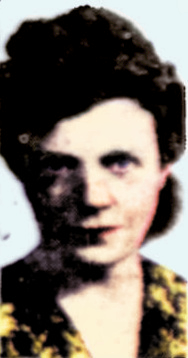The Pittsburgh Press (September 10, 1941)

I DARE SAY —
…
Books, books
…
By Florence Fisher Parry
Books to keep you awake. Books to put you asleep. They all have their place if they’re placed, as all books should be, within arm’s length – beside your bed, near the dining room table, on the bathroom radiator, on the kitchen windowsill, and especially, especially, in the car beside you. For most of life is made up of little lulls between one activity and another. That’s where books come in.
To me, their greatest use is to fill in what otherwise would be a completely wasted time; the time spent in bed trying to go to sleep just because it’s time to. That’s what most insomnia is really. Me, I see no use whatsoever in trying to make one’s self sleep. Sleep can’t be coerced. It has to descend upon one of its own free will.
But it can be wooed, it can be encouraged. There are those who would sleep by reading something dull. To me, this is a fatal recourse, for dull books merely make me mad; and anger is fatal to sleepiness. I find that the more engrossing and fascinating a book is, the surer I am to fall right to sleep after reading at it: for it succeeds immediately in jerking my mind off whatever has been keeping me awake; and thus jolted from the thing that has been plaguing me, I am free to sleep.
Nor do I think that it is really so important what one reads so long as it happens to be HIS OWN taste, and not another’s forced upon him. One should read what one likes, whether it be trash or treasure.
Indeed, just liking to read is in itself sufficient. I’d rather spend my life with one who reads a lot, even if we never read the same books, than live my life with one to whom reading was an occasional and acquired virtue, even though he deigned to read only “the best.”
The happiest couple I know spent nearly 50 ideal years together. They were wholly congenial. They both did a lot of reading, but I don’t believe they were ever known to read the same things.
It seems to me that little children have entirely too many books thrown at their heads, too young. I know that, when my children were little, I spoiled for them one enchanting book after another, by sticking them into their hands too early. Later, the same mistake was made by their English teachers in school, piling “required reading” lists upon them. They weren’t given the chance to discover books for themselves.
Bedside books
Well, I’ve strayed far afield of the “books by the bedside” which I started out to write about 500 words ago. My intention, when I drew the page through the typewriter and wrote down “I Dare Say,” was to list the books which I see piled up there beside my bed telephone, and which have put me to sleep in their own stirring fashion, by ridding my mind of whatever was keeping it stewing.
Any one of these books named below can be counted to take your mind off you.
If you like to look into the sensitive mind of a poet, then John Masefield’s In the Mill is your dish. The first stirrings of the creative urge in him, the first lovely encounter with words as a medium of self-expression are beautifully set down. England’s poet laureate found his muse in a carpet factory in Yonkers, NY. And the thought inevitably follows: how many Britishers today, In the Mill of their present ordeal, are also finding their highest reaches, and henceforth will scorn to live on less lofty plateaux of spiritual awareness.
Margaret Leech’s Reveille in Washington evokes the same picture of a Babel-ing boom town as is evoked by the news out of Washington today. War seems to corrupt our Capitol, make it gross and obscene, drunken and delirious. Lincoln in wartime is a picture of despair and disillusion – a solitary peak of grandeur in a miserable melee of corruption. Nowhere else has such a devastating picture of America sprawling under the impact of war been produced, except in Carl Sandburg’s Abraham Lincoln: The War Years and of course Stephen Vincent Benét’s incomparable John Brown’s Body.
War and murder
Of the World War II books (of which there are literally thousands!), the Berlin Diary of William L. Shirer continued to be my favorite, even though it has not nearly the distinction of several others, among which A Thousand Shall Fall by Hans Habe is definitely the most passionate and moving – yes, and beautiful in a strange violent way. Leland Stowe’s No Other Road to Freedom is Richard Harding Davis without his white plume. It is denunciatory, flaming and factual, and voices perhaps the most terrifying prophecy of any of the war correspondents’ output. And Somerset Maugham’s civilized record of his own experiences (Strictly Personal) is a pleasant and quietly objective piece of war writing.
The Sun is My Undoing simply looks too long to read but so were Anthony Adverse and Gone With the Wind, so that doesn’t prove anything but my own impatience.
If I’m to turn to fiction, give me Helen MacInnes’ Above Suspicion, and two simply swell murder stories, Design For Murder by Percival Wilde and Murder For Pleasure by Howard Haycraft. Any less spicy dish than manhunts and murder is out of key with the mood of today.